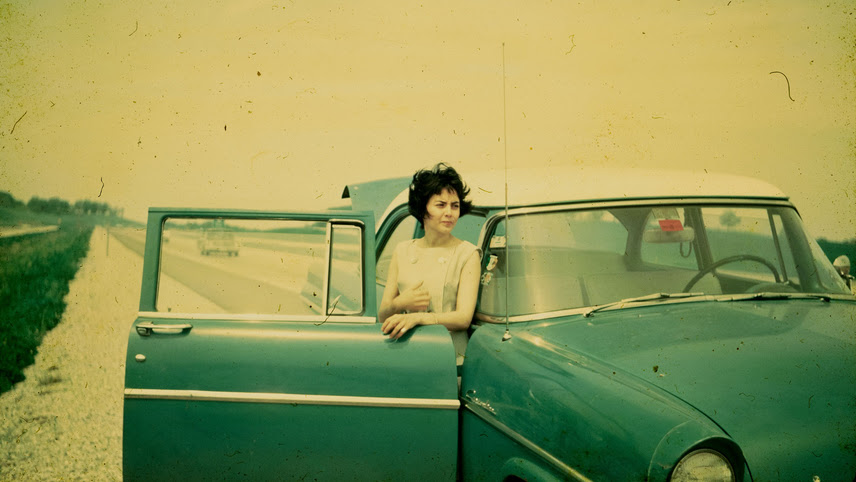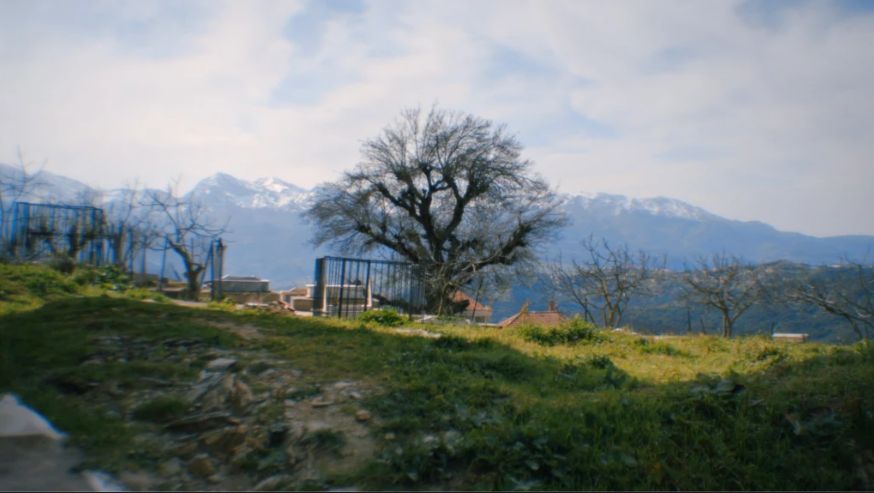Doc Corner: Karim Ainouz's 'Mariner of the Mountains'
 Thursday, June 2, 2022 at 6:00PM
Thursday, June 2, 2022 at 6:00PM By Glenn Dunks

The journey from Africa to Europe has been seen many times on screen in both documentary and fiction. Mariner of the Mountains, now available on streaming after screening at last year's Cannes Film Festival, begins with a journey in the opposite direction. Far less common and shown here being committed in relative luxury compared to the dangerous refugee boats often equated with cross-continental Mediterranean journeys.
Director Karim Aïnouz is familiar to some audiences for his films like Invisible Life and Futuro Beach that span continents and the way we often go looking for something somewhere else and don’t find it. Or struggle to. Or aren’t sure what it was they were looking for at all...
It’s a familiar feeling I am sure to many who venture across seas and land to begin a new life and it’s something that he explores again in this, his third feature-length documentary. Here, he sets out for his father's homeland of Algeria.
Mariner of the Mountains is something of a travel diary—although the editing of Ricardo Saraiva, at times both fluid and yet jagged—often fights against this non-fiction sub-genre’s more traditional rhythms. Although his dad is still alive, he has been long absent and so narration is spoken to his late mother, Iracema, who raised him as a single parent in Brazil. We learn of Aïnouz’s parents own journey that took in Colorado and back to Algeria during its civil war, often as “Moon River” softly echoes across the soundtrack more than once. When the director arrives in Algeria, he notes that it is the first time he hasn’t had to spell his name at the Customs desk.
From there, he meets a variety of people and visits just as many places. There are the younger kids who wish France was still the colonizing power. He crosses the Atlas Mountains and meets a young family and wonders—could they be related? He eventually locates his father’s birthplace and meets relatives thought long-lost.
Mariner of the Mountains is of course about the journey from a strictly narrative standpoint. As a story of point a to point a and back to point a again, a story of familial introspection, it is a lovely work of documentary. But what makes Aïnouz’s film something altogether more special and unique are its technical ingredients. As well as Saraiva’s aforementioned editing, which also makes use of historical archive footage, the work of cinematographer Juan Sarmiento G. is of an almost indescribable importance. Predominantly built out of crisply shot digital images and photographs, the film sometimes uses switches to simultaneously shot Super 8 analog that mimcs the evocative, textural beauty of old family movies taken of Aïnouz’s mother. While in other films this could come across as gimmicky, it actually allows the film to dance a dance of fleeting, fluttering memories that brings generations crashing together. The sound design too, an integral part of its power.

Considering Mariner of the Mountains is so distinctly about memory, it’s fitting that all of these parts work together to make something that is so, well, memorable. Aïnouz infuses his heartfelt passages of love and pain with avant-garde cutaways and inserts. A final visual explosion over the end credits to the sounds of Jimmy Somerville singing his Bronski Beat hit “Smalltown Boy” is one of many indelibly moments that separately could feel unnecessary or distracting, but when compiled here as they have been in association with every else really does help form a one-of-a-kind picture.
This a picture that allows for the audience to drift in and out of its tonal shifts. It’s not necessarily an easy film to watch or engage with if you’re not on its wavelength fairly early on. But it does move in waves, like those of the Mediterranean. It’s likely each viewer will have a different moment that emerges as one that rises above the rest. With so many options, I would certainly hope it would! Mariner of the Mountains moves like a dream without the sort of filters that our awaken selves so easily put up. Like some sort of Cronenergian device that puts us directly into Aïnouz’s mind with its flurry of images, ideas, identities, words and memories. It’s a sublime work of art that like Aïnouz’s earlier films, Futuro Beach and The Invisible Life of Euridice Gusmao will linger long in my own memory.
Release: Streaming as of this week in many countries on MUBI.
Awards chances: Doubtful. This is the sort of thing that probably won’t even be submitted given it’s so far away from what the branch normally goes for. I know some thought The Invisible Life had a shot for the international category several years ago, but I suspect like Yorgos Lanthimos before him, the director’s next work (a royal drama with Alicia Vikander and Jude Law) could prove a meeting of sensibilities.



Reader Comments (2)
duplicated
If you enjoy Karim's work so much, maybe you should try O Céu de Suely (Love For Sale), his most famous film in Brazil. It's a fiction, but with some of the director's favorite themes, such as family roots, identity search, sexuality and the will for fulfillment. Also, the film has a climatic sequence shot in Super 8.